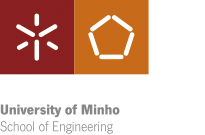Wednesday, 10/25/2017
We are celebrating the 30th anniversary of the Erasmus Programme in 2017, a milestone for Europe. Apart from student mobility, the EEUM has been participating in diverse opportunities offered by the programme to boost international cooperation.
Launched in 1987, 3,244 students participated in
the first year of the Erasmus programme. Between 1987 and 2017, 9 million
students had the opportunity to take on an international experience to study,
travel, enrol in an internship, gain professional experience or work as a
volunteer in a foreign country.
Apart from learning mobility of individuals (Key
Action 1), the advantages of Erasmus+ programmes include opportunities for
universities and other organisations from partner countries also benefit from
the transfer of ideas and expertise that help build the skills and capacities Europeans
need to embrace the challenges of a globalised economy, through partnership
projects supporting innovation or the exchange of good practices (Key Action 2)
or through projects to support policy reform (Key Action 3).
The School of Engineering has been taking part in
international consortia in the scope of several projects, within cooperation
strategies under Key Action 2.
Find out more about some of the projects counting
on the collaboration of EEUM’s researchers.
Strategic Partnerships aim to support
the development, transfer and/or implementation of innovative practices as well
as the implementation of joint initiatives promoting cooperation, peer learning
and exchanges of experience at European level.
Within the scope of Erasmus+ Key Action 2, gathering Sector Skills Alliances is also another
form of cooperation. These aim at strengthening Europe's innovation capacity
and at fostering innovation in higher education, business and the broader
socio-economic environment. SSAs are designed to tackle skills, aligning
vocational education and training (VET) systems with labour market needs,
aiming at bridging the gap between skills offer and demand, drawing on evidence of trends in a specific
economic sector and skills needed in order to perform in one or more
professional fields.
A third cooperation action within Key Action 2 is Capacity Building in the field of higher education, which aims to
support the modernisation, accessibility and internationalisation of higher
education in the Partner Countries. These are transnational cooperation projects
based on multilateral partnerships, primarily between higher education
institutions (HEIs) from Programme and eligible Partner Countries. Through
structured cooperation, exchange of experience and good practices and
individual mobility, Capacity-building Projects aim fundamentally to support
Partner Countries in the modernisation, accessibility and internationalisation
of higher education, in addressing the challenges facing their higher education
institutions and systems and contributing to cooperation between the EU and
these countries.
+ info: The Erasmus+ 2018 Programme Guide, including call
for proposals’ deadlines for the several Key Actions, is now available at: https://eacea.ec.europa.eu/erasmus-plus_en

